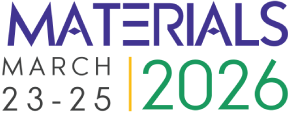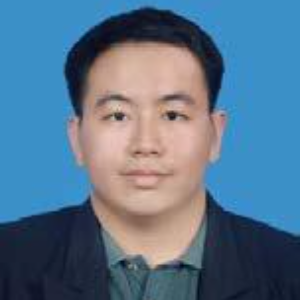Title : Titanium carbide: A new 2D material for photoelectrochemical biosensors
Abstract:
2D materials that contain carbon such as graphene, graphitic carbon nitride and graphene oxide have been well utilized in photoelectrochemical biosensing. Each of the material has its unique role, whether as a conductive material (graphene, reduced graphene oxide), a photoactive material (graphitic carbon nitride, GCN) or as a site for immobilization of biomolecules (graphene oxide). Recently, a new group of 2D carbon containing material known as MXenes were discovered and are found to have high electrical conductivity with Ti3C2 being the commonly used MXene. As a conductive material, Mxene has the potential in enhancing the photocurrent produced by a photoactive material. A nanocomposite is formed between Ti3C2 and a photoactive material, GCN. GCN was sonicated with Ti3C2 in different weight ratios (1:1, 3:1 and 5:1) to make a GCN/Ti3C2 nanocomposites and the physical properties were evaluated via Field Emission Scanning Electron Microscopy (FESEM) and X-ray Diffraction (XRD). Photoelectrochemical measurements were conducted to evaluate the degree of enhancement of photocurrent in the GCN/Ti3C2 nanocomposite. The nanocomposite was deposited onto a conductive FTO electrode and the photocurrent was evaluated using a three-electrode system. Material characterizations confirmed the successful formation of GCN/Ti3C2. Photocurrent measurements concluded that Ti3C2 could enhance the photocurrent generated by GCN under illumination by 200% when Ti3C2 was added to GCN in a ratio of 3:1 (GCN: Ti3C2). The enhancement of photocurrent could have taken place via the formation of heterojunction between GCN and Ti3C2. With this breakthrough, in-depth studies can be carried out to apply GCN/Ti3C2 nanocomposite as a sensing platform for photoelectrochemical biosensing for the detection of proteins, antigens, and DNA.
Audience take away:
- The presentation will introduce on the various 2D carbon-based nanomaterials.
- The audience will be exposed to a relatively new 2D carbon-based material: MXenes and their uses.
- Introduction to modification strategies of MXenes for biosensing applications.
- Significant knowledge creation/transfer on the use of modified MXenes in photoelectrochemical biosensing and its mechanism and advantages over conventional methods.



